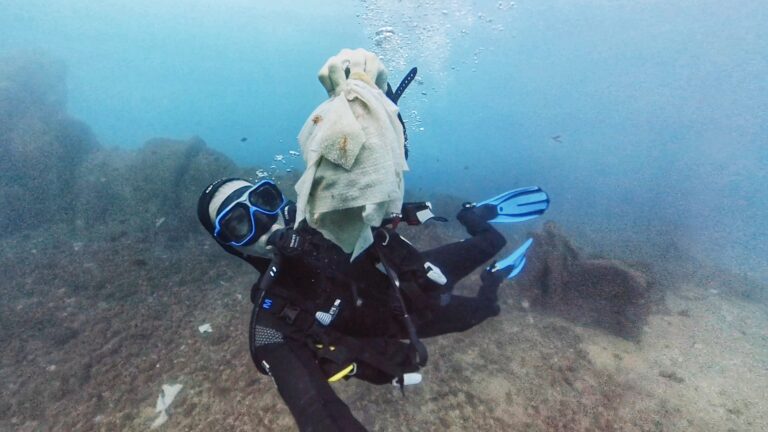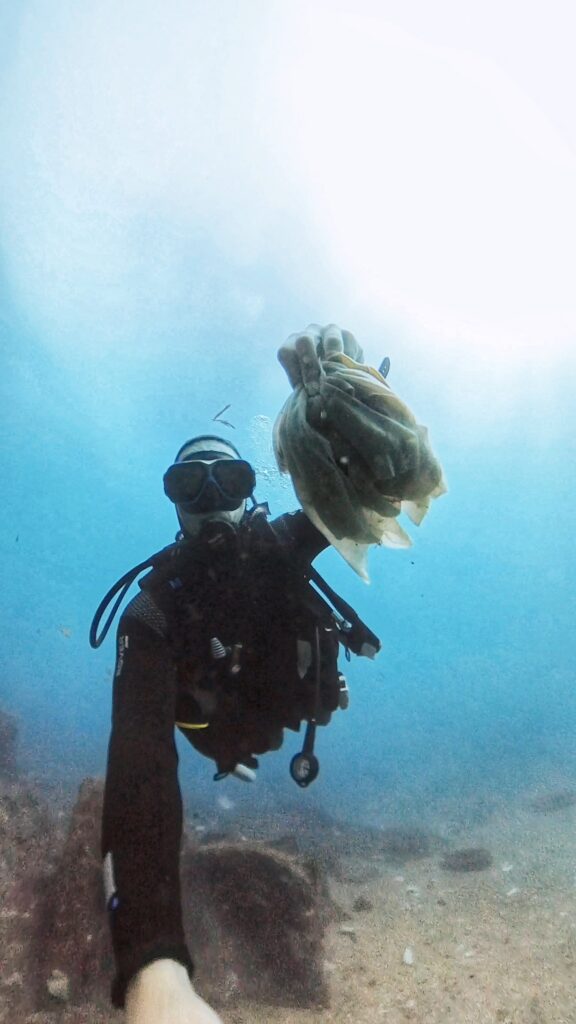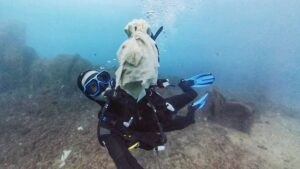
The connection between our bathrooms and the sea is often invisible. But a dive can reveal it relentlessly. In its latest report, The Trash Traveller shows how wet wipes that are carelessly flushed down the toilet are becoming a global problem in our oceans. These disposable products are a prime example of why we urgently need to integrate circular thinking into our everyday lives in order to stop marine pollution at its source.
The Wipes’ Journey: From Sewer System to the Sea
During a dive off Madeira, The Trash Traveler observed long strands of wipes floating like pale ribbons through the water. What is visible underwater here often begins in bathrooms far away.
The problem: Wipes consist of synthetic fibers such as polyester and polypropylene, which are difficult to decompose in water. When flushed down the toilet, they accumulate in the sewer system and combine with fats and oils to form massive deposits, known as fatbergs.
The Risk of Combined Sewer Systems
Similar overflows occur in Germany and other European countries. During heavy rain, many cities rely on combined sewer systems, where rainwater and wastewater share the same pipes. These systems discharge excess water directly into rivers to prevent flooding.
As a result, undecomposed wipes and microfibers pass untreated from households all the way to the coast. During extreme weather events, wipes are among the many plastic items that completely bypass sewage treatment and end up in rivers and seas.
Invisible Danger: Why Wipes Harm Ecosystems
In the ocean, wipes decompose extremely slowly.
-
They release synthetic fibers and can be ingested by filter-feeding marine animals.
-
They also bind pollutants that adhere to their surfaces.
Their presence underwater serves as a strong reminder of why disposable products must be reduced and redesigned. Circular solutions avoid waste at the source by relying on systems based on reuse rather than disposal.
Ocean Package implements this principle by replacing single-use shipping materials with durable containers that remain in the cycle. This makes systemic change visible, from logistics to consumer behavior.

Circular Thinking Starts at Home
Floating wipes underwater are an alarming reminder that marine pollution often begins at home, but it can be prevented through better design, improved infrastructure, and a circular economy approach.
Did you know your toilet is connected to the ocean? We can all contribute to this change and share this knowledge with friends and family to strengthen awareness. Let’s remember: what we throw away does not simply vanish but becomes part of a global problem that can only be solved through collective, circular thinking.
Relevant content
From the Toilet into the Deep: Wet Wipes in the Ocean
The connection between our bathrooms and the sea is often...
Read MoreSocial Business: How Ocean Package is revolutionising the packaging industry (Munich Insights)
As Becci from The Ocean Package team, I am writing...
Read More
